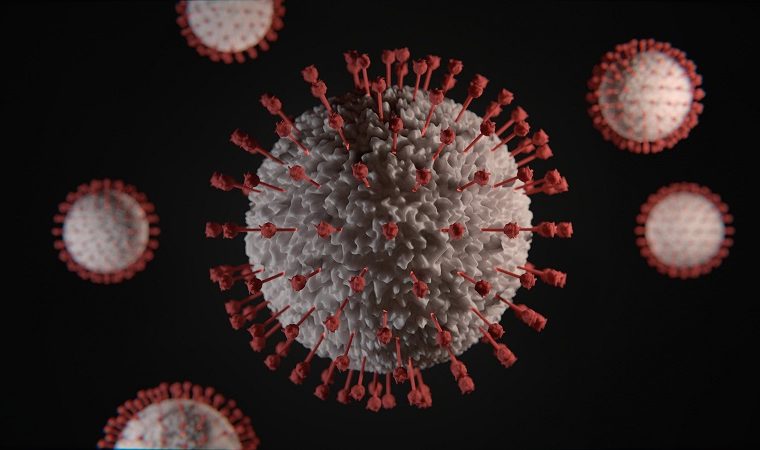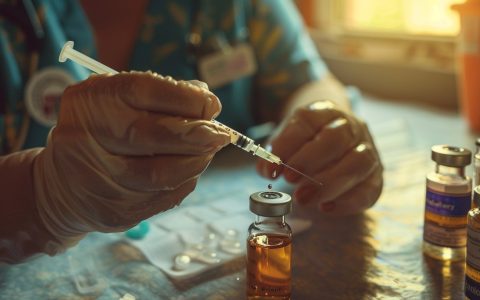
Tobacco plants have been genetically modified to create an alluring fragrance containing insect sex pheromones, which could be used to confuse would-be love-seeking pests and reduce the need for harmful pesticides.
By using precise genetic engineering techniques. Researchers at Norwich Earlham Institute have been able to turn tobacco plants into solar-powered factories that produce moth sex pheromones.
Crucially, they have shown how to efficiently manage the production of these molecules so that normal plant growth is not hindered.
Pheromones are complex chemicals produced and released by living organisms as a means of communication. They allow members of the same species to send signals, which include letting others know they’re looking for love.
Content
Farmers can hang pheromone dispersants in crops that mimic the signals of female insects to trap or distract male insects in their search for a mate. Some of these molecules can be produced through chemical processes. But chemical synthesis is often expensive and produces toxic byproducts.
Dr Nicola Patron, who led the new research and head of the Earlham Institute’s Synthetic Biology Group, uses cutting-edge science to get plants to produce these valuable natural products.
Synthetic biology applies engineering principles to the building blocks of life – DNA. By creating genetic modules with instructions for building new molecules. Dr. Patron and her team can turn plants such as tobacco into factories that require nothing more than sunlight and water.
“Synthetic biology could allow us to engineer plants to make more of what they already produce. Or we could give them the genetic instructions to make new biomolecules, such as drugs or pheromones,” Dr Patron said.
In this latest work, the team, in collaboration with scientists at the Institute of Plant Molecular and Cell Biology in Valencia, engineered a species of tobacco, Nicotiana benthamiana, to produce moth sex pheromones. The factory has previously been adapted to produce Ebola antibodies and even coronavirus-like particles for the Covid-19 vaccine.
More
The team built new DNA sequences in the lab to mimic the moth genes. And introduced molecular switches to precisely regulate their expression, which effectively turned the manufacturing process on and off.
An important component of the new research was being able to fine-tune pheromone production, as forcing plants to constantly make these molecules has its downsides.
“When we increase efficiency, too much energy is diverted from normal growth and development,” Dr Patron explained.
“These plants produce a lot of pheromones, but they can’t grow very large, which radically reduces the productivity of our production lines. Our new research provides a way to more subtly regulate gene expression.”
In the lab, the team set out to test and refine the control of the genes responsible for producing a cocktail of molecules that mimic the sex pheromones of moths, including navel orange worms and cotton bollworms.
They found that copper sulfate could be used to fine-tune the activity of genes, allowing them to control the timing and level of gene expression. This is especially important because copper sulfate is an inexpensive.
They were even able to carefully control the production of different pheromone components. They allowing them to tweak the cocktail to better suit specific moth species.
“We’ve shown that we can control the level of expression of each gene relative to the others,” Dr. Patron said. “This allows us to control the ratio of the product.
“The correct formulation is especially important for moth pheromones. As they are usually a mixture of two or three molecules in specific ratios. Our collaborators in Spain are now extracting the plant-made pheromones and testing them in dispensers them. See how they compare to the female moths.”
CONCLUSION
The team hopes their work will pave the way for the routine use of plants to produce a variety of valuable natural products.
“A major advantage of using plants is that it is much more expensive to manufacture complex molecules using chemical processes,” said Dr Patron. “Plants already produce a range of useful molecules. So we were able to use the latest technology to adapt and improve existing machinery.”
“In the future, we may see greenhouses filled with plant factories. Offering a greener, cheaper and more sustainable way to make complex molecules.”
Collected by Lifeasible a biotechnology company that addresses the genetic modification of plants through multiple popular genetic engineering technologies. Including CRISPR/CAS9, CRISPR base editors, transcription activator-like effector nucleases (TALENs), zinc finger nucleases (ZFNs), RNA interference (RNAi), virus-induced gene silencing (VIGS), and gene overexpression.
Lifeasible provides gene overexpression
Lifeasible provides comprehensive molecular biology services in plants, including gene overexpression, to accommodate your research needs. Gene overexpression as a means to elucidate plant gene function has been used as an alternative or complementary method to loss-of-function approaches as well as to confer new functions to plants.
It may be particularly suitable in occasions when genes are functionally redundant or when a knockout mutation is particularly deleterious.
Source from Lifeasible
As a biotechnology company, Lifeasible is specialized in agricultural science. Offering a wide variety of agro-related services and products for environmental and energy solutions.
Our plant breeding and culture services support increasingly stringent safety and quality standards in the agricultural industry. Relying on our revolutionary techniques, various molecular breeding services. And molecular diagnostic methods are offerr for a wider range of agriculture-related sectors. Meanwhile, extensive analytical solutions reach out to a wider community of researchers in environmental and energy fields. Holding a strong tie between biological innovation and transformation in the ecosystem. Lifeasible now leverages the expertise and strengths of each to create its unique platform that is accessible to all leaders working in agriculture, botany, biology, ecology and environmental science. Having taken on step forward, we also provide lab-to-field solutions that advance the breeding process for farmers and breeders. Diverse analytical tools are available for breeding or quality control purposes in identification and production of plants.
Lifeasible welcomes collaborative relationships with other parties of interest, enabling flexible and rapid development of new technologies and products. Our staff is always ready to discuss the details of specific needs and to develop strategies tailored to your requirements.
Lifeasible provides comprehensive molecular biology services in plants, including gene overexpression, to accommodate your research needs.



